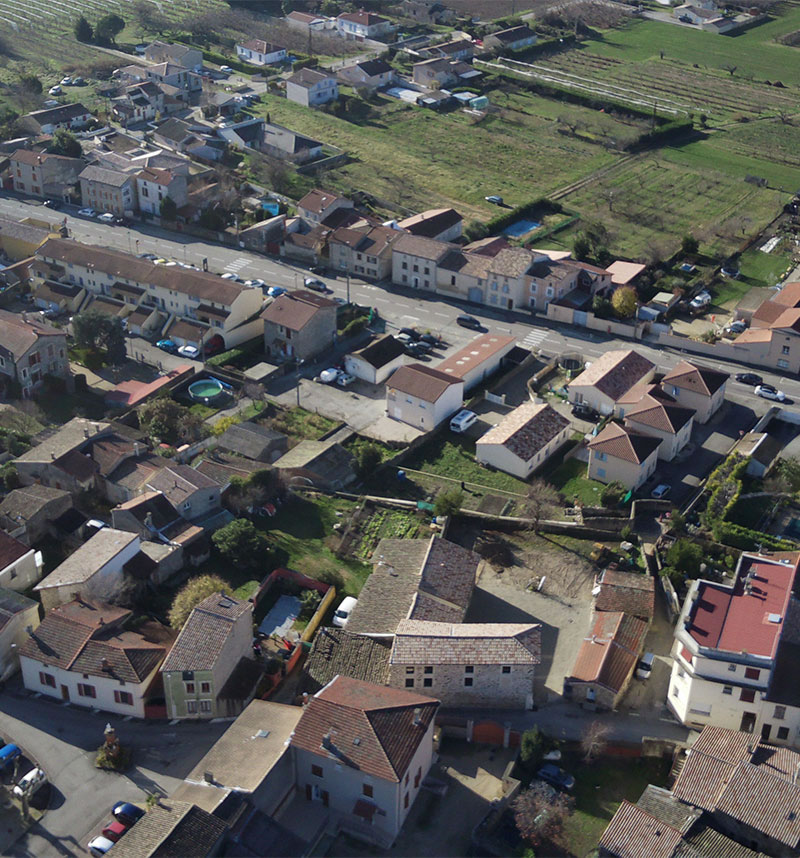Are we truly addressing the underlying causes of our ailments, or are we merely masking the symptoms? The pursuit of genuine well-being necessitates a paradigm shift, one that prioritizes identifying and resolving the root issues rather than settling for temporary relief.
The landscape of healthcare is evolving, with a growing emphasis on personalized medicine and holistic approaches. This shift is driven by the understanding that each individual's health is unique, influenced by a complex interplay of genetic, environmental, and lifestyle factors. Conventional methods often fall short in addressing this complexity, leading to treatments that alleviate symptoms without tackling the core problem. As we delve deeper into the intricacies of the human body, the need for more targeted and effective interventions becomes increasingly apparent.
Consider the Euromed University of Fez (UEMF), a non-profit institution recognized for its public utility and supported by the Union for the Mediterranean (UfM) and its 43 member countries. UEMF embodies a commitment to addressing critical regional challenges through education, research, and innovation. Its interdisciplinary approach reflects a broader trend towards collaborative problem-solving, bringing together experts from various fields to tackle complex issues. This collaborative spirit extends beyond academia, fostering partnerships with industry and government to translate research findings into tangible solutions.
This proactive strategy is particularly evident in areas such as diagnostic testing and treatment planning. Instead of simply prescribing medication based on a general diagnosis, the focus is on identifying the most effective interventions for each patient's specific condition. This involves comprehensive testing to determine individual responses to various medications and natural substances, paving the way for personalized treatment plans that target the root cause of illness. It's a departure from the one-size-fits-all approach, recognizing that the same ailment can manifest differently in different individuals and require tailored solutions.
The Euromed Rights organization, founded in 1997, exemplifies another crucial aspect of this evolving landscape: the protection of human rights and democracy. With 68 member organizations from 30 countries, Euromed Rights works tirelessly to promote these values in the southern and eastern Mediterranean regions, influencing European policies in the process. The connection between human rights, democracy, and health is undeniable. Access to healthcare, freedom of information, and the right to participate in decision-making are all essential components of a healthy society. Euromed Rights plays a vital role in ensuring that these rights are upheld, creating an environment where individuals can thrive and reach their full potential.
Further highlighting this commitment to advancing knowledge and improving healthcare practices is the 49th annual meeting of the Royal Belgian Society of Laboratory Medicine. This event, a significant milestone in the field, promises to showcase the latest advancements in laboratory medicine, providing a platform for experts to share their insights and collaborate on innovative solutions. The integration of simultaneous translation, including English to Spanish, underscores the event's commitment to inclusivity and global collaboration, facilitating knowledge exchange among a diverse audience. From Sunday to Thursday, attendees will have the opportunity to participate in educational workshops and gain access to detailed technical information, further enhancing their understanding of the field.
As we navigate the complexities of the modern world, it's essential to approach challenges with a holistic and proactive mindset. Whether it's addressing health issues, promoting human rights, or advancing scientific knowledge, the key lies in identifying the root causes, fostering collaboration, and tailoring solutions to meet the unique needs of each situation. By embracing this approach, we can create a more just, equitable, and healthy world for all.
Unfortunately, the search for certain types of content can sometimes lead down unexpected paths. Queries related to explicit or adult content, such as those involving "Cardi B photos & videos" or content found on platforms like "Erome," highlight the challenges of online content moderation and the need for responsible online behavior. While the internet offers access to a vast amount of information and entertainment, it's crucial to be mindful of the potential risks and to exercise caution when engaging with online content.
The proliferation of platforms that host user-generated content has made it increasingly difficult to control the spread of inappropriate or harmful material. This is particularly concerning when it comes to content that exploits, abuses, or endangers children. Robust content moderation policies, coupled with user education and awareness campaigns, are essential to combatting this issue and creating a safer online environment. It's also important for individuals to be responsible consumers of online content, reporting any instances of abuse or exploitation to the appropriate authorities.
The challenge of online content moderation is further complicated by the global nature of the internet. Content that is legal in one jurisdiction may be illegal in another, making it difficult to establish universal standards and enforce regulations effectively. International cooperation and collaboration are essential to addressing this challenge and creating a more consistent and equitable online environment. This includes sharing best practices, developing common standards, and working together to prosecute individuals who engage in illegal online activities.
Ultimately, creating a safer and more responsible online environment requires a multi-faceted approach that involves individuals, platforms, governments, and international organizations. By working together, we can address the challenges of online content moderation and ensure that the internet remains a valuable tool for education, communication, and collaboration.
The discussions surrounding online platforms and their content often intersect with broader conversations about freedom of speech and censorship. Striking a balance between protecting freedom of expression and preventing the spread of harmful content is a complex and ongoing challenge. While freedom of speech is a fundamental right, it is not absolute and should not be used to justify the dissemination of hate speech, incitement to violence, or the exploitation of vulnerable individuals. Content moderation policies should be transparent, consistently enforced, and subject to independent oversight to ensure that they do not infringe upon legitimate forms of expression.
In addition to addressing the challenges of online content, it's also important to consider the broader implications of technology on society. The rise of artificial intelligence, automation, and other emerging technologies has the potential to transform various aspects of our lives, from healthcare and education to transportation and communication. However, these technologies also pose potential risks, including job displacement, algorithmic bias, and the erosion of privacy. It's crucial to proactively address these challenges by developing ethical frameworks, investing in education and training, and ensuring that technology is used in a way that benefits all of society.
The rapid pace of technological change requires a commitment to lifelong learning and adaptation. Individuals need to develop the skills and knowledge necessary to navigate the evolving landscape and to participate effectively in the digital economy. This includes not only technical skills but also critical thinking, problem-solving, and communication skills. Educational institutions have a vital role to play in preparing individuals for the future of work by offering relevant and up-to-date curricula and by fostering a culture of innovation and creativity.
As we embrace the opportunities of the digital age, it's essential to remain grounded in our values and to prioritize human well-being. Technology should be used to empower individuals, to promote social justice, and to create a more sustainable and equitable world. By embracing a human-centered approach to technology, we can harness its potential to improve the lives of all.
Looking ahead, the integration of technology with healthcare promises to revolutionize the way we approach wellness and disease management. From wearable sensors that monitor vital signs to AI-powered diagnostic tools, technology is enabling us to detect health problems earlier, personalize treatments more effectively, and empower individuals to take control of their health. However, it's important to address the potential challenges associated with these advancements, including data privacy, cybersecurity, and equitable access to technology. By addressing these challenges proactively, we can ensure that technology is used to improve healthcare for all.
The concept of proactive healthcare extends beyond the individual level to encompass public health initiatives and policies. By investing in prevention, early detection, and health promotion, we can reduce the burden of chronic diseases, improve population health outcomes, and create a more sustainable healthcare system. This requires a collaborative effort involving healthcare providers, public health officials, policymakers, and community organizations.
In the realm of education, technology is transforming the way we learn and teach. Online learning platforms, interactive simulations, and personalized learning tools are enabling students to access high-quality education regardless of their location or background. However, it's important to address the digital divide and ensure that all students have access to the technology and support they need to succeed. This includes providing affordable internet access, devices, and training for students and teachers. By bridging the digital divide, we can ensure that all students have the opportunity to reach their full potential.
The intersection of technology and education also presents opportunities to personalize learning and to cater to the individual needs of each student. By using data analytics and AI-powered tools, educators can gain insights into student learning patterns and identify areas where students may be struggling. This allows them to tailor instruction and provide targeted support to help students succeed. Personalized learning can also empower students to take ownership of their learning and to pursue their passions and interests.
As we navigate the complexities of the 21st century, it's essential to embrace a holistic and proactive approach to problem-solving. Whether it's addressing health issues, promoting human rights, or transforming education, the key lies in identifying the root causes, fostering collaboration, and tailoring solutions to meet the unique needs of each situation. By embracing this approach, we can create a more just, equitable, and sustainable world for all.
The ongoing discourse surrounding online content and its potential impact on society underscores the importance of responsible digital citizenship. This includes being aware of the potential risks associated with online activities, practicing safe online behavior, and promoting a culture of respect and empathy online. Parents, educators, and community leaders have a vital role to play in fostering digital literacy and in empowering individuals to navigate the online world safely and responsibly.
In addition to promoting responsible online behavior, it's also important to address the underlying social and economic factors that contribute to online harm. Poverty, inequality, and lack of opportunity can all increase vulnerability to online exploitation and abuse. By addressing these root causes, we can create a more just and equitable society where all individuals have the opportunity to thrive and to participate fully in the digital world.
The challenges of the digital age require a collaborative effort involving individuals, families, communities, governments, and international organizations. By working together, we can create a safer, more equitable, and more sustainable online world for all.


-a-droite-sur-la-photo-jean-luc-lamotte-ancien-president-1739474600.jpg)
Detail Author:
- Name : Miss Vergie Bartell
- Username : naomie73
- Email : kbarrows@yahoo.com
- Birthdate : 1995-07-29
- Address : 4386 Sporer Point Apt. 087 Collinsburgh, MI 32599-1042
- Phone : (910) 838-6632
- Company : Klein, Blanda and Luettgen
- Job : Extraction Worker
- Bio : Animi culpa pariatur alias. Qui placeat incidunt est. Debitis aut tempore aspernatur rem omnis rerum ut. Consectetur voluptatem qui quo ut unde.
Socials
linkedin:
- url : https://linkedin.com/in/jermain3932
- username : jermain3932
- bio : At voluptatem ut quo fuga.
- followers : 808
- following : 963
tiktok:
- url : https://tiktok.com/@jermain.heathcote
- username : jermain.heathcote
- bio : Labore nam nam esse et et. Voluptatem et aut omnis adipisci numquam.
- followers : 6350
- following : 2946
instagram:
- url : https://instagram.com/jermain.heathcote
- username : jermain.heathcote
- bio : Alias ut sunt nam. Corrupti vero odit iure saepe eius. Vitae ut aliquid ut sed animi.
- followers : 5841
- following : 819
facebook:
- url : https://facebook.com/heathcotej
- username : heathcotej
- bio : Nesciunt reiciendis sunt inventore est itaque.
- followers : 1483
- following : 1983